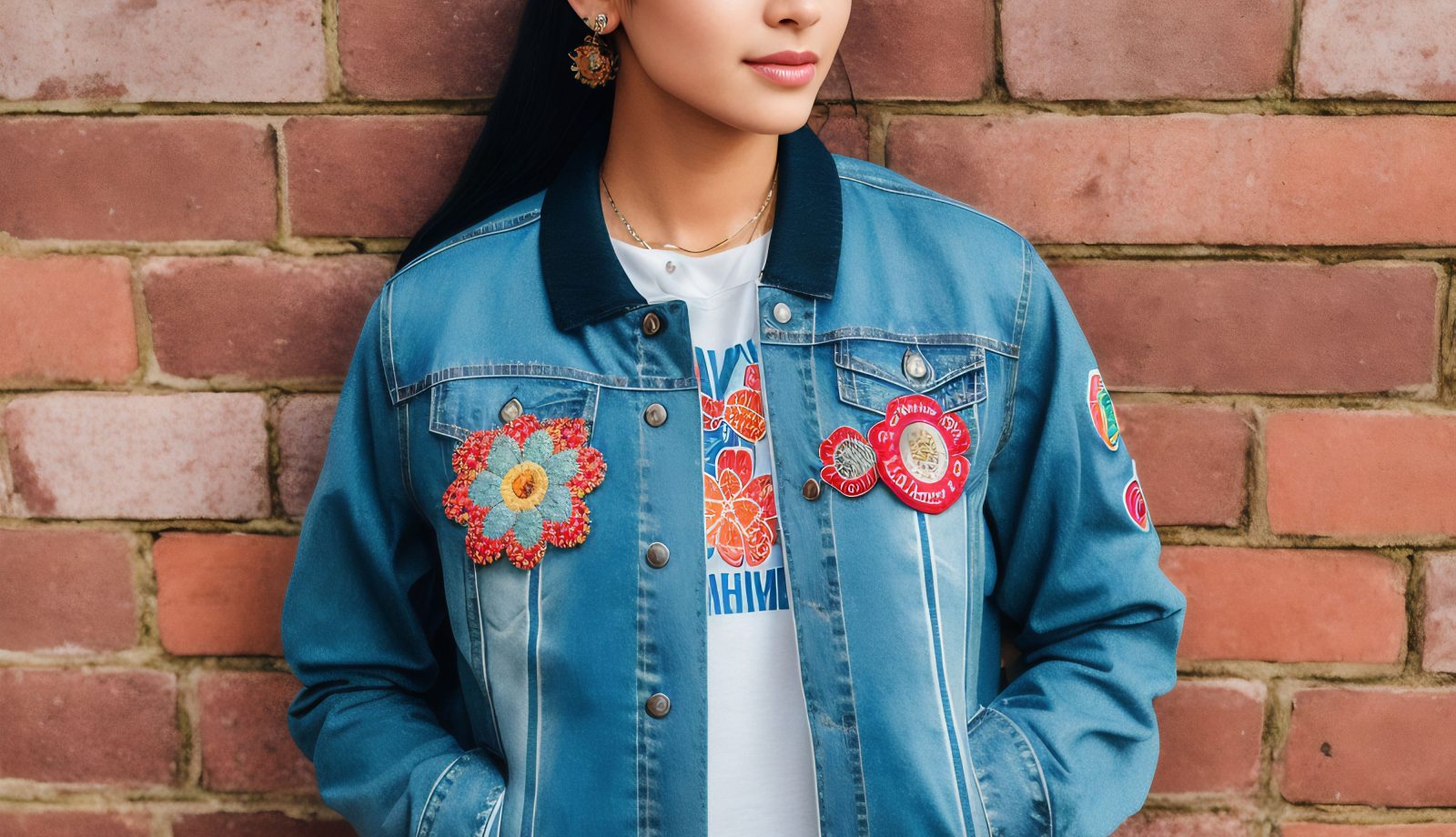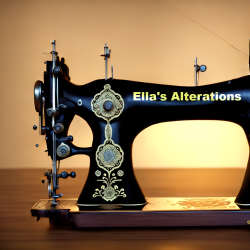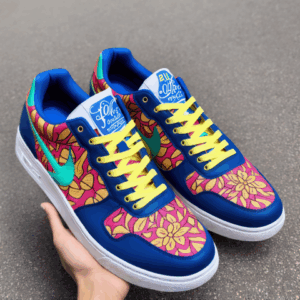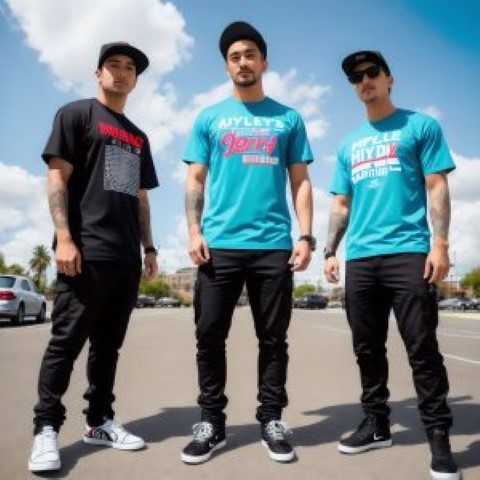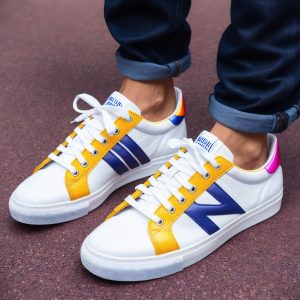Customize and Conquer Why People are Opting for Personalized Clothing. | ||
|---|---|---|
Introduction:Customize and Conquer Why People are Opting for Personalized Clothing. Clothing has always been a way for individuals to communicate their identities, beliefs, and aspirations. From ancient civilizations to modern times, clothing has played a vital role in human culture. However, in recent years, there has been a noticeable shift towards personalized clothing, where individuals are actively involved in designing and creating garments that reflect their unique personalities. This essay aims to explore the reasons behind this trend and the impact it has on the fashion industry. The concept of personalized clothing is rooted in the innate human desire for self-expression. As social beings, we crave recognition and strive to stand out from the crowd. Clothing serves as a powerful medium for expressing our individuality and showcasing our personal style. In the past, fashion choices were often limited to the available mass-produced garments offered by retailers. However, advancements in technology, changes in consumer behavior, and a growing emphasis on sustainability have given rise to a new era of customized fashion. In the era of mass production and consumerism, where fast fashion dominates the market, people are increasingly seeking alternatives to the cookie-cutter styles that flood the retail landscape. Personalized clothing provides an avenue for individuals to reject the uniformity imposed by mass-produced fashion and embrace their unique sense of style. By allowing consumers to customize their clothing, they can create garments that reflect their personalities, tastes, and values. Moreover, the rise of personalized clothing is closely linked to the broader cultural shifts towards ethical and sustainable consumption. As consumers become more aware of the environmental and social impacts of the fashion industry, there is a growing demand for clothing that aligns with their values. Personalization offers an opportunity to move away from the throwaway culture of fast fashion and embrace a more mindful and conscious approach to dressing. By investing in customized garments, individuals can make choices that are more aligned with their desire for long-lasting, durable, and ethically produced clothing. Technological advancements have played a pivotal role in driving the popularity of personalized clothing. The digital revolution has transformed the way we shop, connect, and create. Online platforms and e-commerce websites have made it easier than ever for consumers to access customization options. With a few clicks, individuals can design their own clothing, select fabric choices, add personalized details, and have their creations delivered to their doorstep. These technological advancements have not only made customization more accessible but also more cost-effective for both consumers and manufacturers. In addition to the digital landscape, advancements in manufacturing technologies have also contributed to the rise of personalized clothing. Innovations such as 3D printing, laser cutting, and computer-aided design have revolutionized the production process. These technologies allow for greater flexibility, efficiency, and precision in creating customized garments. As a result, manufacturers are now able to offer customization services without compromising on quality or increasing costs significantly. The implications of this shift towards personalized clothing extend beyond individual consumer choices. The fashion industry, as a whole, is undergoing a transformation. Traditional retailers and fashion brands are recognizing the demand for customization and are incorporating personalized options into their offerings. This shift requires rethinking business models, supply chains, and production processes to accommodate the growing desire for personalized garments. It also opens up new avenues for independent designers and entrepreneurs to enter the market, catering to niche markets and specific customer preferences. The rise of personalized clothing represents a significant cultural shift in the fashion industry. Driven by the need for self-expression, rejection of mass production, and advancements in technology, people are increasingly opting for customized garments that reflect their unique identities. This trend not only satisfies individual desires for self-expression but also has wider implications for the fashion industry as it adapts to meet the evolving demands of consumers. As the era of mass production gives way to personalized fashion, the industry must embrace customization as a means to foster creativity, sustainability, and inclusivity. | ||
| ||
Self-Expression and Identity:Psychological Need for Self-Expression: When individuals have the freedom to personalize their clothing, it fosters a sense of agency and control over their self-presentation. It allows them to break free from societal norms and express their true selves. By wearing customized garments, individuals can showcase their creativity, originality, and personal tastes, which ultimately contributes to their overall sense of well-being and satisfaction. Social Significance of Personalized Clothing: Personalized clothing serves as an invitation for conversations and interactions. It acts as a conversation starter, allowing individuals to connect with others who share similar interests or appreciate their unique style choices. By expressing themselves through their clothing, individuals can attract like-minded individuals and build meaningful relationships based on shared values and aesthetics. Moreover, personalized clothing can also empower individuals to challenge societal norms and stereotypes. It provides a platform for marginalized groups to reclaim their identities, challenge traditional beauty standards, and promote inclusivity. Through customization, people can embrace their cultural heritage, express their gender identities, or promote social causes, creating a more diverse and inclusive fashion landscape. Overall, personalized clothing fulfills not only individual psychological needs for self-expression but also facilitates social connections and empowers individuals to challenge societal norms. It enables people to communicate their identities, affiliations, and beliefs while fostering a sense of belonging and acceptance within their communities. In the next section, we will explore the reasons behind the rejection of mass production and consumerism, and how personalized clothing aligns with the growing demand for ethical and sustainable consumption. | ||
| ||
| Ella’s Alterations LLC 813-445-8894 https://ellasalterations.com | ||
Rejecting Mass Production and Consumerism:The Desire for Uniqueness: Personalized clothing provides a solution to this problem by allowing individuals to break away from the homogeneity of mass-produced garments. By customizing their clothing, individuals can create unique designs, choose specific color combinations, incorporate personal symbols or images, and select fabrics that resonate with their personal preferences. This process enables them to craft garments that are tailored to their individuality, making them feel truly unique and special. Ethical and Sustainable Consumption: Personalized clothing promotes a more conscious and sustainable approach to fashion. By allowing individuals to participate in the design process, it encourages thoughtful consumption and discourages impulse buying. When consumers invest in personalized garments, they tend to place greater value on the quality, durability, and longevity of their clothing, reducing the overall demand for fast fashion.
Moreover, customization provides an opportunity to support local and independent designers who prioritize sustainable and ethical practices. By opting for personalized clothing, consumers can choose garments that are made from eco-friendly materials, produced in ethical working conditions, or even upcycled from existing fabrics. This shift towards personalized clothing contributes to a more sustainable fashion industry by reducing waste, minimizing carbon footprints, and supporting responsible manufacturing practices. Additionally, personalized clothing encourages a shift towards a more circular economy. By actively engaging in the design process, consumers become more aware of the materials and production methods involved. This awareness can lead to a greater emphasis on recycling, upcycling, and repairing garments, thereby reducing the overall environmental impact and promoting a more sustainable fashion ecosystem. The rejection of mass production and consumerism is a significant driving force behind the popularity of personalized clothing. The desire for uniqueness, coupled with the demand for ethical and sustainable consumption, has led individuals to seek alternatives that allow them to express their individuality while aligning with their values. Personalized clothing empowers individuals to break free from the constraints of mass-produced fashion, embrace their uniqueness, and contribute to a more sustainable and conscious fashion industry. In the following section, we will explore the role of technological advancements in enabling the customization of clothing. | ||
| ||
| Second-Hand Chic: Embrace Sustainability with 80s Hand-Me-Down Wedding Dresses! | ||
| Ella’s Alterations LLC 813-445-8894 https://ellasalterations.com | ||
Technological Advancements:Digitalization and Online Platforms: Online platforms provide consumers with convenient and accessible avenues for customizing their clothing. Websites and applications offer user-friendly design interfaces that allow individuals to choose from a variety of customization options such as colors, patterns, cuts, and embellishments. These platforms often provide real-time previews and virtual simulations, giving customers a clear idea of how their personalized garment will look before making a purchase. Furthermore, the rise of social media has created a platform for individuals to showcase their personalized fashion creations and gain inspiration from others. Social media influencers, bloggers, and fashion enthusiasts use these platforms to share their customized outfits, collaborate with brands, and engage with a global community of like-minded individuals. This interconnectedness and visibility have fueled the desire for personalized clothing, as people seek to express themselves and gain recognition in the digital sphere. Advancements in Manufacturing Technologies: 3D printing allows for the creation of three-dimensional objects by layering materials according to a digital design. This technology has the potential to revolutionize personalized clothing by enabling the production of intricate and customized garments. It offers the flexibility to create complex shapes, textures, and patterns that would be difficult to achieve through traditional manufacturing methods. Laser cutting technology allows for precise and intricate fabric cutting, enabling the creation of personalized designs and details. This technology is particularly beneficial for customization as it offers the ability to cut and engrave fabrics with precision, allowing for intricate patterns, personalized monograms, or unique embellishments. Computer-aided design (CAD) software has made it easier for designers and consumers alike to create and visualize customized clothing. CAD programs enable individuals to design garments from scratch or modify existing templates, making the customization process more accessible to those without formal design training. These software tools allow for easy experimentation with colors, shapes, and styles, empowering individuals to bring their creative visions to life. The advancements in manufacturing technologies have not only made personalized clothing more feasible but have also opened up opportunities for small-scale designers, independent brands, and entrepreneurs. The democratization of manufacturing processes has lowered the barriers to entry, allowing individuals to start their own customized clothing businesses and cater to niche markets or specific customer preferences. Technological advancements have played a pivotal role in driving the popularity of personalized clothing. The digitalization of the fashion industry, coupled with advancements in manufacturing technologies, has made customization more accessible, convenient, and cost-effective. Online platforms and social media have created avenues for individuals to design, showcase, and gain inspiration for their personalized fashion choices. The integration of 3D printing, laser cutting, and CAD software has expanded the possibilities for customization, making it easier for consumers to create unique and personalized garments. The role of technology in personalized clothing is likely to continue evolving, creating even more opportunities for customization in the future. | ||
| ||
Implications for the Fashion Industry:Shifting Business Models: Additionally, the customization trend has opened up opportunities for direct-to-consumer (D2C) models, where brands can engage with customers directly, bypassing traditional retail channels. By offering personalized clothing online, brands can establish a closer connection with their consumers, gather valuable data on preferences, and provide a more tailored shopping experience. This shift towards D2C models allows for greater control over the customization process and fosters a sense of brand loyalty and exclusivity. Empowering Independent Designers and Entrepreneurs: Independent designers and entrepreneurs can cater to niche markets, specific customer preferences, or underrepresented communities that are often overlooked by mainstream fashion brands. By embracing personalization, these designers can build loyal customer bases, foster meaningful connections with their audience, and carve out their own unique space in the industry. Sustainability and Ethical Considerations: Furthermore, customization allows for the use of sustainable materials, such as organic fabrics, recycled materials, or upcycled textiles. By choosing eco-friendly options, personalized clothing can contribute to reducing the environmental impact of the fashion industry. Additionally, the emphasis on customization promotes a slower fashion cycle, where garments are valued, repaired, and worn for longer, reducing the overall waste generated by fast fashion. Challenges and Considerations: Additionally, ensuring the quality and consistency of personalized garments can be a challenge. Mass production allows for quality control measures to be implemented at various stages of the production process. However, customization introduces variations and complexities that need to be managed effectively to meet customer expectations. Furthermore, personalization relies heavily on digital platforms and technologies. This raises concerns regarding data privacy, cybersecurity, and intellectual property rights. Brands must prioritize the security of customer data and ensure transparent and ethical use of personal information. The rise of personalized clothing has significant implications for the fashion industry. It necessitates the adaptation of business models, empowers independent designers and entrepreneurs, and aligns with the growing demand for sustainability and ethical consumption. While challenges exist, embracing personalization opens up new avenues for creativity, inclusivity, and customer engagement. As the trend continues to evolve, it is crucial for fashion brands to embrace customization as a means to foster innovation, sustainability, and customer satisfaction. | ||
| ||
| ||
| Are Seamstresses the Same as Tailors? Unraveling the History behind the Titles | ||
Conclusion:The popularity of personalized clothing has surged as individuals seek avenues for self-expression, uniqueness, and a departure from mass-produced fashion. Customization allows people to curate their own unique style, communicate their identities, and break away from societal norms. Moreover, personalized clothing fosters social connections, enables marginalized groups to reclaim their identities, and promotes inclusivity in the fashion landscape. The rejection of mass production and consumerism has been a significant driver behind the demand for personalized clothing. People desire uniqueness in their fashion choices and are increasingly conscious of the environmental and social impact of the fashion industry. Personalized clothing addresses these concerns by offering a more sustainable and ethical alternative. It encourages thoughtful consumption, supports local and independent designers, and promotes a shift towards a circular economy. Technological advancements have played a pivotal role in the rise of personalized clothing. Online platforms, social media, 3D printing, laser cutting, and CAD software have made customization more accessible, convenient, and cost-effective. These advancements have empowered individuals to engage in the design process, connect with like-minded individuals, and explore their creativity. The implications for the fashion industry are significant. Traditional retailers and brands are adapting their business models to incorporate customization options and embrace direct-to-consumer approaches. Independent designers and entrepreneurs are finding opportunities to enter the market, cater to niche markets, and challenge traditional fashion hierarchies. The shift towards personalized clothing also aligns with sustainability and ethical considerations, promoting mindful consumption, eco-friendly materials, and a slower fashion cycle. While challenges exist, such as maintaining efficient production processes and ensuring quality control, the trend of personalized clothing offers exciting possibilities for innovation, inclusivity, and customer engagement. Fashion brands must embrace customization as a means to foster creativity, sustainability, and customer satisfaction. In conclusion, personalized clothing has become a powerful tool for self-expression, a rejection of mass production, and an embodiment of individuality. It empowers individuals to curate their own unique style, promotes sustainability and ethical consumption, and drives innovation in the fashion industry. As the trend continues to evolve, personalized clothing will likely play an even more prominent role in shaping the future of fashion. Customize and Conquer Why People are Opting for Personalized Clothing. #PersonalizedFashion #CustomClothing #SelfExpression #UniqueStyle #Individuality #FashionIdentity #CustomizeAndConquer #TailoredFashion #FashionRevolution #SustainableFashion #EthicalConsumption #SlowFashion #CustomMade #Handcrafted #FashionInnovation #FashionInspiration #FashionForward #ExpressYourself #CustomizedStyle #FashionEmpowerment #EllasAlterationsLLC | ||
| ||
| ||
| Ella’s Alterations LLC 813-445-8894 https://ellasalterations.com | ||
| Personalize Your Wardrobe: Why Customized Clothing is a Must-Have. | ||
|
Customize and Conquer Why People are Opting for Personalized Clothing.
